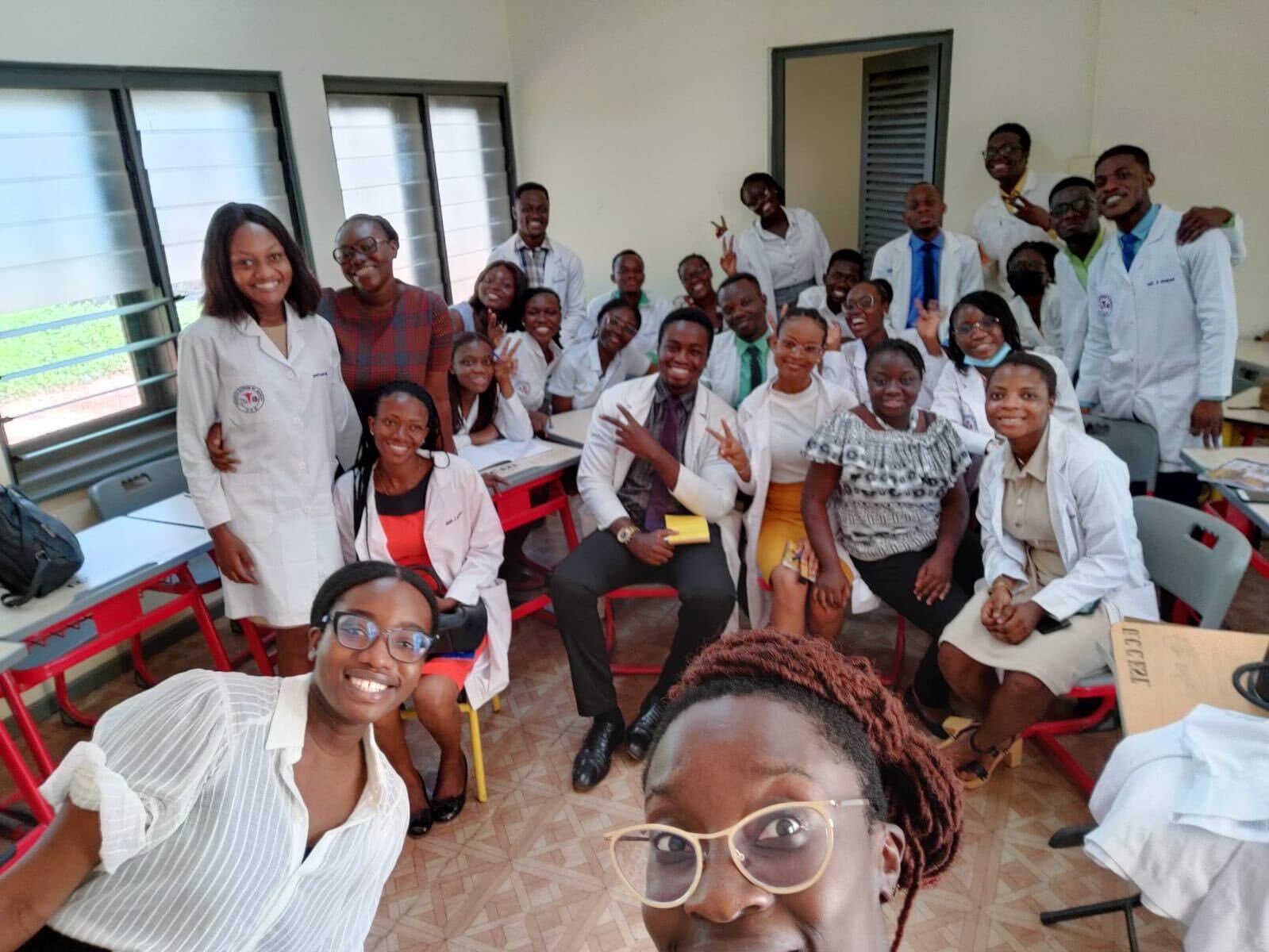Global Elective: Reflections from Dr. Martha Duah
There’s this warm feeling that comes over me whenever I land in Ghana. The moment I step outside into the crowd of people bustling around the airport looking for loved ones, I let out a breath I did not realize I was holding in. I’m home. I’m in a country that is completely mine. I am not a minority, I’m the majority. I am not othered, I am part of the in-group. I’m in a country where everyone looks like me, where the billboards and ads have models that look like me, where I can feel at ease because this country is my birthright. However, this visit was different because I was not here to simply lounge around my mom’s house complaining to her about the heat, eating all of her food, and sneaking off to my grandpa’s house to enjoy his AC; I was here to actually be useful.
Knowing that I, who was just a medical student 2 years ago, would be responsible for teaching medical students was nerve racking. Residents are often tasked with teaching medical students in clinical settings, which usually occurs naturally as you talk through cases with them and give advice on how to improve their skills. While this type of clinical setting was comfortable for me, I was here to teach in both clinical and classroom settings; the classroom setting was uncomfortable. The thought of me standing in front of a lecture hall teaching dozens of students about psychiatry was enough to make me feel nauseous.
As I got out of the airport, I was greeted by my mother and grandfather who came to collect the items they had tasked me to pack in my suitcase to bring to them. My mother brought me a Tupperware full of Red Red and fried plantain. My grandfather also greeted me with several bags of plantain chips, half of which I was instructed to share with my program director, Dr. Owusu, who had arrived in Ghana earlier. Dr. Owusu also met me at the airport with her mother and father. Introductions were made and I made sure to get some FanIce before Dr. Owusu and I started the 3 hour road trip from Accra to the University of Cape Coast Medical Sciences in Cape Coast, Ghana.
The schedule for the week consisted of psychiatry lectures in the morning and clinical experiences in the afternoon. The first few days, I watched Dr. Owusu teach about child psychiatry. I role played as a child and as a parent in faux interviews, and I helped teach interviewing skills to the medical students with a real patient at Ankaful Psychiatric Hospital. When it came time for me to teach my lessons, I started with a shaky voice but grew more comfortable as the lesson continued. At first I had to encourage students to speak louder and called on people randomly to answer questions, but with time the class began to engage and spontaneously ask more questions. By the end of the week, I had a lot to reflect on.
During a lecture on depressive mood disorder, I had the students guess what the letters in the mnemonic SIGECAPS stood for. Knowing that the letters in SIGECAPS represented depression symptoms, they answered with things that could look like depression in Ghanian culture. For example, a student said “community” for C. The students went through and created their own SIGECAPS for what depression looked like to them: SIGECAPS (Ghana). Here I was teaching medical students in Ghana about depression using the DSM-5, which has a Western understanding of mental illness historically among white patients. Of course there would be overlap, but what if by teaching them DSM-5 criteria I was inadvertently priming their minds to miss other symptoms that may be more prominent in Ghana? This led to me think about psychiatry as a whole and how the area of study is intertwined with Western culture.
Since coming back to Boston, I have been wrestling with the idea of how to practice psychiatry in Ghana. Someday, I see myself going back to this country I so boldly proclaimed as my birthright to practice and teach psychiatry. However, I will be coming with a strong Western approach. I was born in Ghana but I left the country at the age of 6. Since then, I have been in the United States; I am very American. Will I be able to do justice to my patients and students with this Westernized view of psychiatry? How do I even begin to deconstruct my preconceived notions about what psychiatry is and how it should be practiced? How can I contribute to the research and literature on psychiatry in Ghana? These and so many more questions have been running through my mind, and I hope to begin to answer some of them as I continue my relationship with the University of Cape Coast Medical Sciences. I hope to return sometime this spring to continue to learn more. By doing so, I hope to learn how I can pour back into this country that has given so much to me.
Written by Dr. Martha Duah


